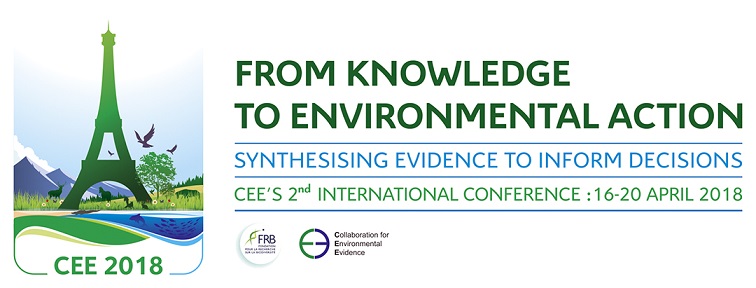
EnseignementsLundi 16 avril après-midi + Mardi 17 avril matin & après-midi Les enseignements sont délivrés en anglais mais un appui en français peut être envisagé (nous contacter)
Meta-analysis training event Monday, 16th and Tuesday, 17th (2 days) Instructors Prof. Julia Koricheva, School of Biological Sciences, Royal Holloway University of London, UK Prof. Elena Kulinskaya, School of Computing Sciences, University of East Anglia, Norwich, UK Objectives The course seeks to promote and facilitate the thoughtful and critical use of meta-analysis for research synthesis in environmental sciences. It will involve combination of lectures and practical sessions where participants will practice conducting meta-analysis using worked examples in metafor package in R. During the first day (basic level) participants will learn how to calculate effect sizes and combine them across studies using fixed and random effects models. On the second day (advanced level) more specialized topics such as meta-regression, dealing with non-independence of observations and publication bias will be covered Target audience The course is suitable for both early career researchers (PhD students, postdocs) as well as more senior researchers interested in learning quantitative methods of research synthesis. Participants should have some familiarity with using R Program Maximum number of participants: 25 Monday, April 16th 11.00-12.00 Introduction to meta-analysis in environmental sciences 12.00-13.00 Session 1: Calculation of effect measures 13.00-14.00 Lunch 14.00-15.30 Session 2: Combining effects across studies 15.30 -16.00 Coffee break 16.00-18.00 Practice 1: Calculating and combining effects across studies Tuesday, April 17th 9.30-11.00 Session 3: Meta-regression 11.00-13.00 Practice 2: Meta-regression 13.00-14.00 Lunch 15.00-16.00 Session 4: Publication bias 16.00-17.00 Session 6: Dealing with missing data and variable research quality
Zotero training event Monday, 16th PM (3h) Instructors
Content Bibliographic management is understood in a broad sense, to include the management of bibliographic references and full-text files. The training course is divided in two stages:
Target audience No prerequesites, beginners and experts are welcome Maximum number of participants: 20
Systematic maps - training event Tuesday, 17th AM (3h; 10-13h) Instructor: Nicola Randall, Harper Adams University, Director of the Centre for Agricultural Evidence Systematic Mapping methodology is increasingly being used to inform environmental policy and management decisions. Unlike traditional systemic review methods, systematic mapping does not aim to answer a specific question, but is instead used to collate, describe and catalogue research evidence, and can be used to identify knowledge clusters and gaps to inform policy, primary research, and future systematic review questions.
This interactive workshop will introduce the key stages of a systematic map: review team stakeholder engagement; question setting; inclusion criteria; scoping and protocol development; searching; screening; coding; systematic map databases and visualisation of findings; reporting and supporting information. The workshop will highlight similarities and differences between systematic maps and other systematic reviews. Presentations and hands-on activities will be used to provide participants with the tools to interpret and evaluate existing systematic maps, and to formulate their own systematic map protocols. Target audience No prerequesites, beginners and experts are welcome Maximum number of participants: 40
Forum around the new guidelines for the conduct of a CEE Systematic Review in environmental management Tuesday, 17th PM (2 hours) This will be an informal event to present the new Guidelines for the Conduct of Evidence-Synthesis in Environmental Management - The new Guidelines will also be presented during the Conference but here is an opportunity to ask questions and discuss about challenges, needs, and expectations... |
| Personnes connectées : 1 | Flux RSS |

|
